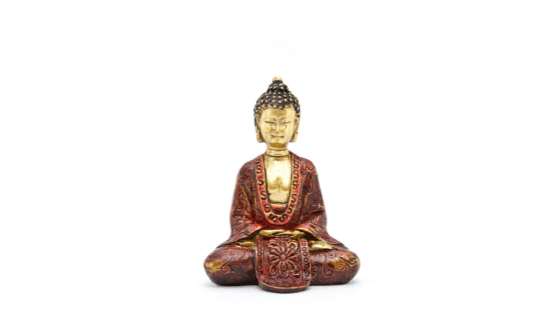Thoughts Of Buddha – Inspiring & Peaceful Words
The thoughts of Siddhartha Gautama, more commonly known as the Buddha, continue to resonate with individuals seeking wisdom, peace, and enlightenment more than 2,500 years after his time.
Born a prince in the foothills of the Himalayas, he abandoned a life of luxury to seek the truth of existence.
After achieving enlightenment under the Bodhi tree, he dedicated the rest of his life to teaching others the path to liberation.
The thoughts of Buddha are the essence of his teachings and form the core of Buddhism. They are a blend of profound wisdom and practical guidance for living a life filled with compassion, mindfulness, and self-realization.
Thoughts of Buddha
The thoughts of Buddha are not merely philosophical ideas; they are practical tools for living a life of wisdom, compassion, and enlightenment.
By understanding and implementing these teachings, one can begin a transformative journey towards a more peaceful and mindful existence:
The Four Noble Truths
These truths are the foundation of Buddhist thought, describing the nature of suffering (Dukkha), its origin (Samudaya), its cessation (Nirodha), and the path leading to its cessation (Magga).
They provide a systematic approach to understanding human suffering and the way to transcend it.
The Eightfold Path
The Eightfold Path is the practice that leads to the cessation of suffering, as described in the Fourth Noble Truth.
It’s a practical guide for ethical living and mental cultivation, divided into wisdom (right view, right intention), ethical conduct (right speech, right action, right livelihood), and concentration (right effort, right mindfulness, right concentration).
Impermanence (Anicca)
Buddha taught that everything in life is transient and constantly changing.
Understanding the impermanence of all things leads to the realization that attachment to them causes suffering and helps foster a sense of detachment and peace.
No-Self (Anatta)
According to Buddha, there is no permanent, unchanging self or soul in living beings.
Recognizing this helps to reduce ego-driven desires and brings about a profound understanding of the interconnectedness of all life.
Compassion (Karuna)
Compassion is central to Buddhist practice.
It means understanding the suffering of others and working to alleviate it. By cultivating compassion, one learns to live with kindness and empathy towards all beings.
Mindfulness (Sati)
Mindfulness means being fully present and aware in each moment.
By practicing mindfulness, one can cultivate a clear and focused mind, leading to a deeper understanding of oneself and the world.
Karma and Rebirth
Karma refers to the law of moral causation, where intentional actions have corresponding effects.
Rebirth is the continuation of a process, a renewed existence following death. Understanding these concepts inspires a responsible and ethical way of living.
Middle Way (Madhyamaka)
The Middle Way represents a path of moderation, avoiding extremes of indulgence and self-denial.
It’s the balanced path to enlightenment, promoting harmony and understanding.
The insights and teachings shared above are but a glimpse into the profound and extensive wisdom of the Buddha.
His thoughts encompass a wide array of philosophical concepts, ethical guidelines, and meditative practices, each interconnected and layered in meaning.
Buddha Thoughts To explore Further
Understanding the thoughts of Buddha is not a matter of mere intellectual curiosity; it is a lifelong journey of self-discovery and transformation.
The teachings are designed to be explored, reflected upon, and most importantly, practiced in daily life.
They invite us to question our assumptions, to look deeply into our own minds, and to engage with the world around us in a more mindful and compassionate manner.
For those inspired to delve deeper into the teachings of the Buddha, a wealth of texts, commentaries, and teachings by knowledgeable practitioners awaits. Whether through formal study, meditation practice, or simple mindful living, the path is open to all who seek to walk it.
In the thoughts of Buddha, we find not a rigid doctrine, but a flexible and adaptable guide to living with wisdom, compassion, and awareness.
This introduction is just the starting point, and the journey, as rich and varied as life itself, unfolds uniquely for each individual who embarks upon it.
If you’re interested in some of the many Buddha quotes that inspire and encourage questioning, then be sure to check out:





